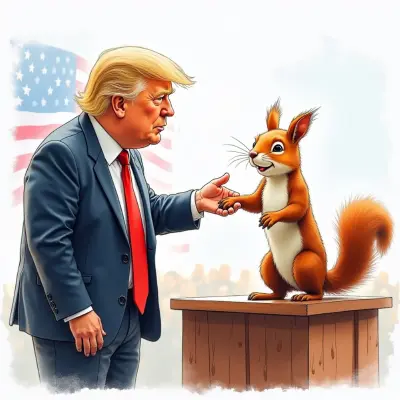In the morning of Wednesday November 6th, the world learned that 75 million American voters elected Donald Trump as President of the United States.
Since then, influential voices from the animal rights world have expressed their concern for what that political victory means to animals. They justify their worry by pointing to Trump’s animal welfare record during his first presidency, which includes: building a southern border wall across the habitats of countless endangered species, weakening the enforcement of the Animal Welfare Act, supporting the interest of hunters and worst.
However, his record was not all bleak. Under his rule, the Preventing Animal Cruelty and Torture Act became federal law, as well as the Horseracing Integrity and Safety Act. He also outlawed animal fighting in the U.S. territories, banned the slaughter and trade of dogs and cats, and allocated funds to create a grant program offering transitional sheltering solutions for domestic violence survivors who are escaping with their companion animals.
Additionally, during this 2024 electoral campaign, he loudly protested the murder of Peanut the squirrel and Fred the racoon by government officials. His support for Peanut generated millions of views across social media platforms, and some even claim it was a decisive factor in leading the race. In stark contrast, Kamala Harris kept silent on the issue. In a viral video, a squirrel appears on stage just before her concession speech, spurring chats about its symbolic significance.
Although the Republican party has historically been much less consistent than the Democratic party in advancing animal protection, there remains clear potential for animal advocates to rally conservatives to their cause. On that note, the day before the election, Vivek Ramaswamy, an ethical vegetarian and close advisor to Trump, wrote, 'Animal cruelty will eventually become a genuine concern for conservatives. It’s already happening. Count me in.'
We should respond positively and eagerly to this open invitation. By doing so, we can make animal rights a bipartisan issue and ensure that the welfare of animals is not left to the whims of political change.
Concretely, there is only one way of reaching that goal: persuading right-leaning people to adopt veganism. According to a Gallup poll, only 2% of conservatives identify as vegans or vegetarians (if not less). With such few vegan constituents, it is only natural for conservative politicians to side with animal exploiters.
Efforts to win over the hearts and minds of conservatives are currently few and far between. Yet, the conservative argument for veganism is incredibly strong.
Matthew Scully, a speechwriter for prominent Republican figures such as George W. Bush, Dan Quayle, Dick Cheney, Mike Pence, Robert P. Casey, and Bob Dole, presented this argument in his books Dominion and, more recently, Fear Factories. https://www.theamericanconservative.com/fear-factories/
Back in September, the nonprofit Faunalytics published a study designed to explain “how to leverage conservative values to help animals” (see Bridging U.S. Conservative Values And Animal Protection by Arévalo, C. & Ólafsson).
Even pope Francis echoes that argument when he writes "We must forcefully reject the notion that our being created in God’s image and given dominion over the earth justifies absolute domination over other creatures" in his 2015 encyclical 'Laudato Si' (Praise Be).
Equipped with this compelling case, we must now find the determination to put our political differences aside and welcome all who share our commitment to ending animal exploitation. For we ought to remember the billions of tormented beings we hope to save, and prioritize them over any form of tribalism.
